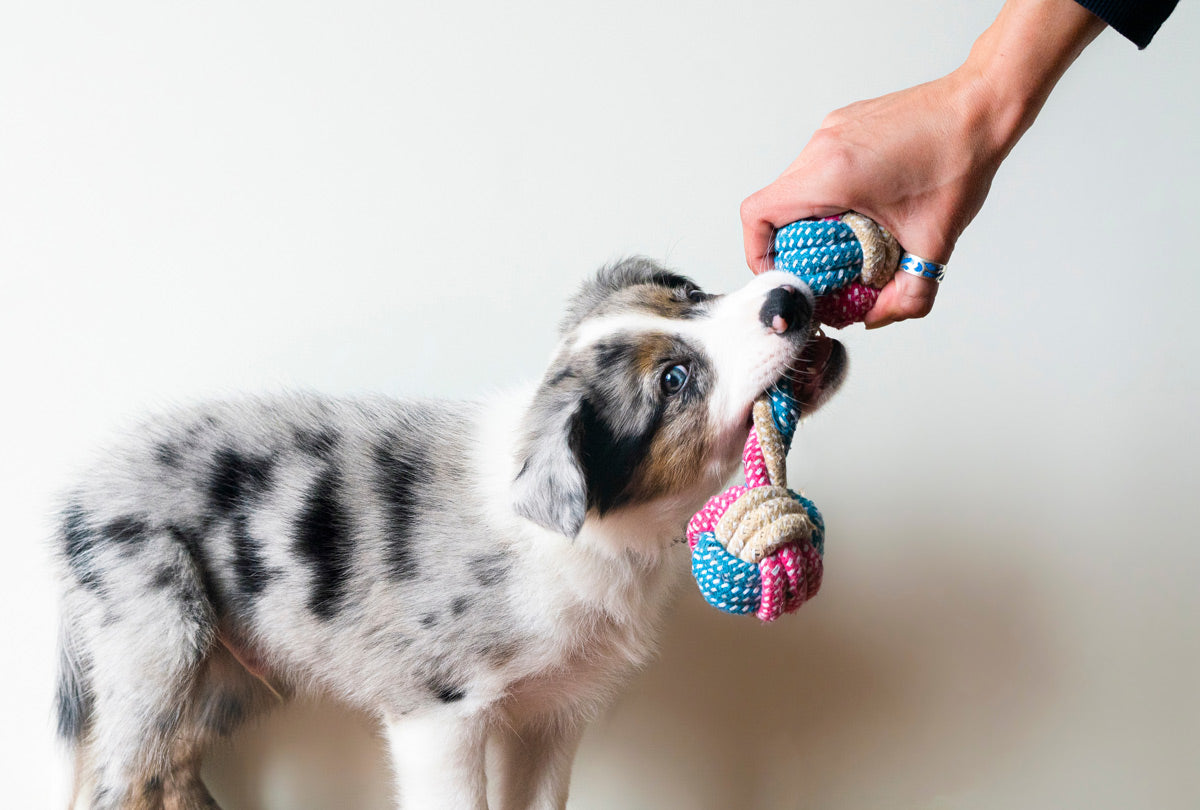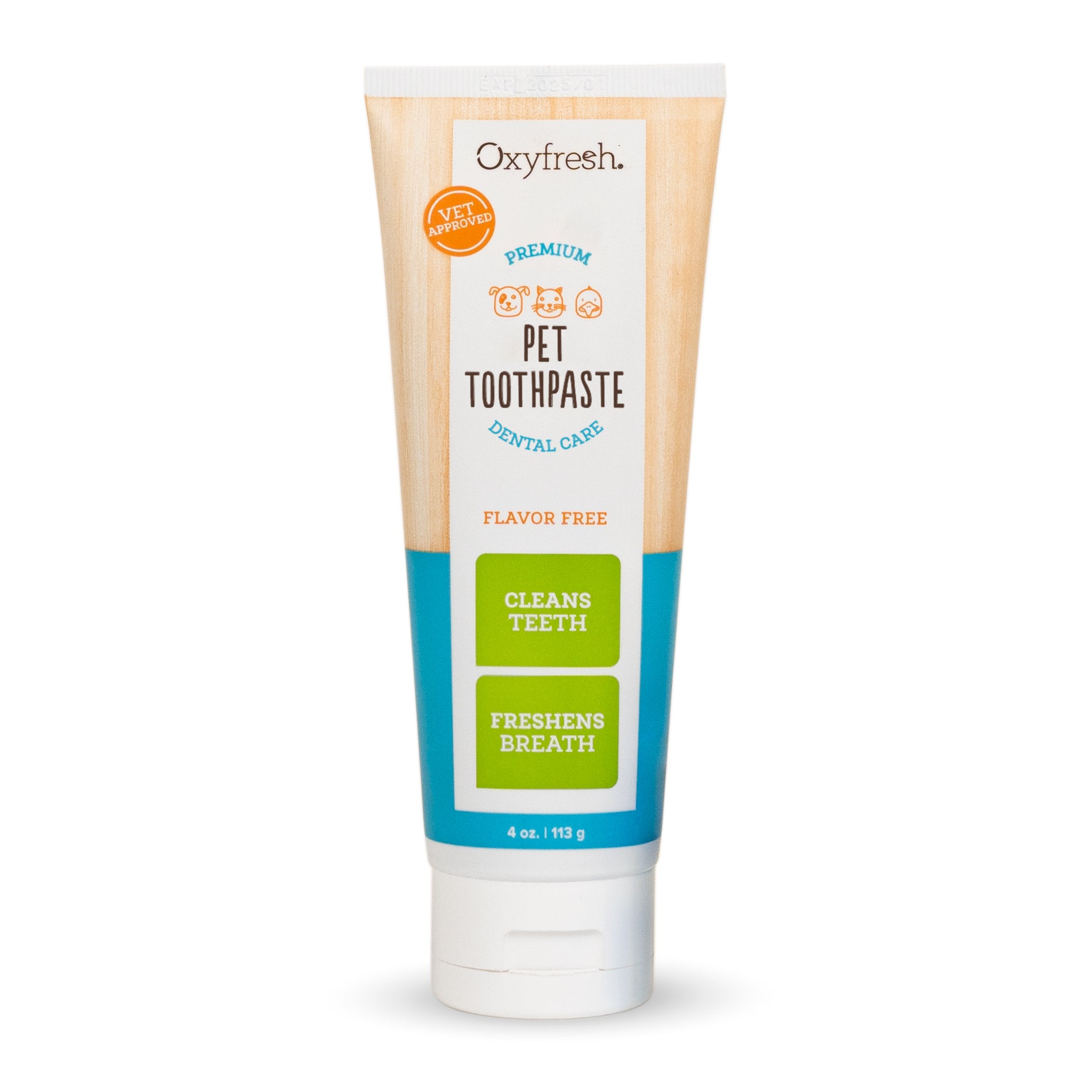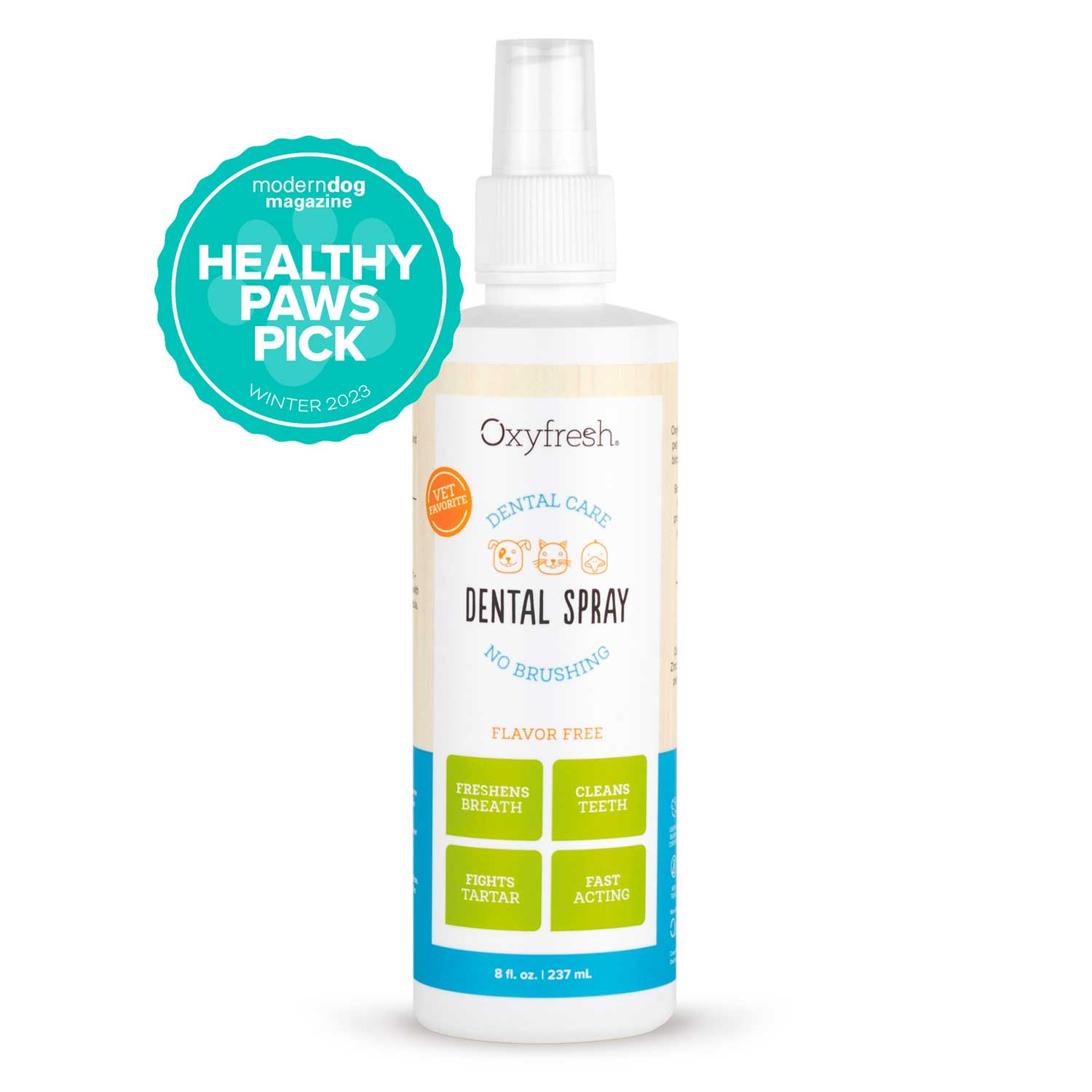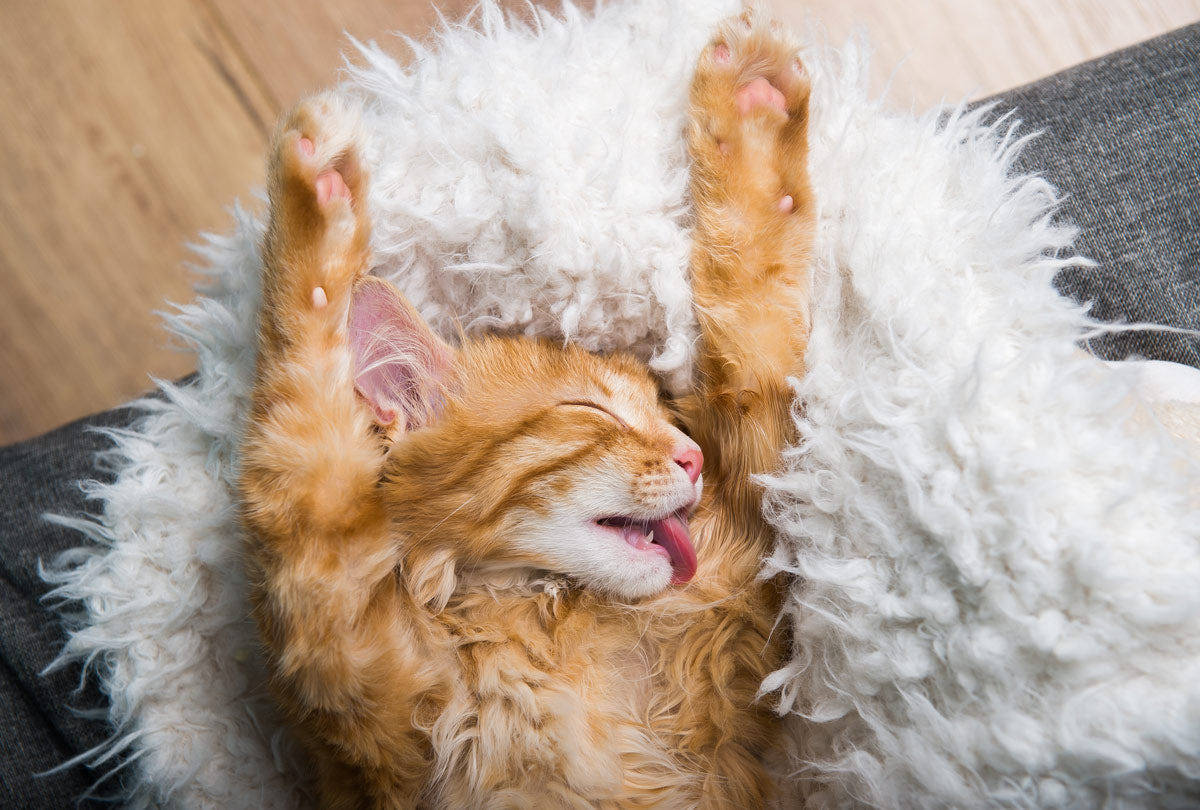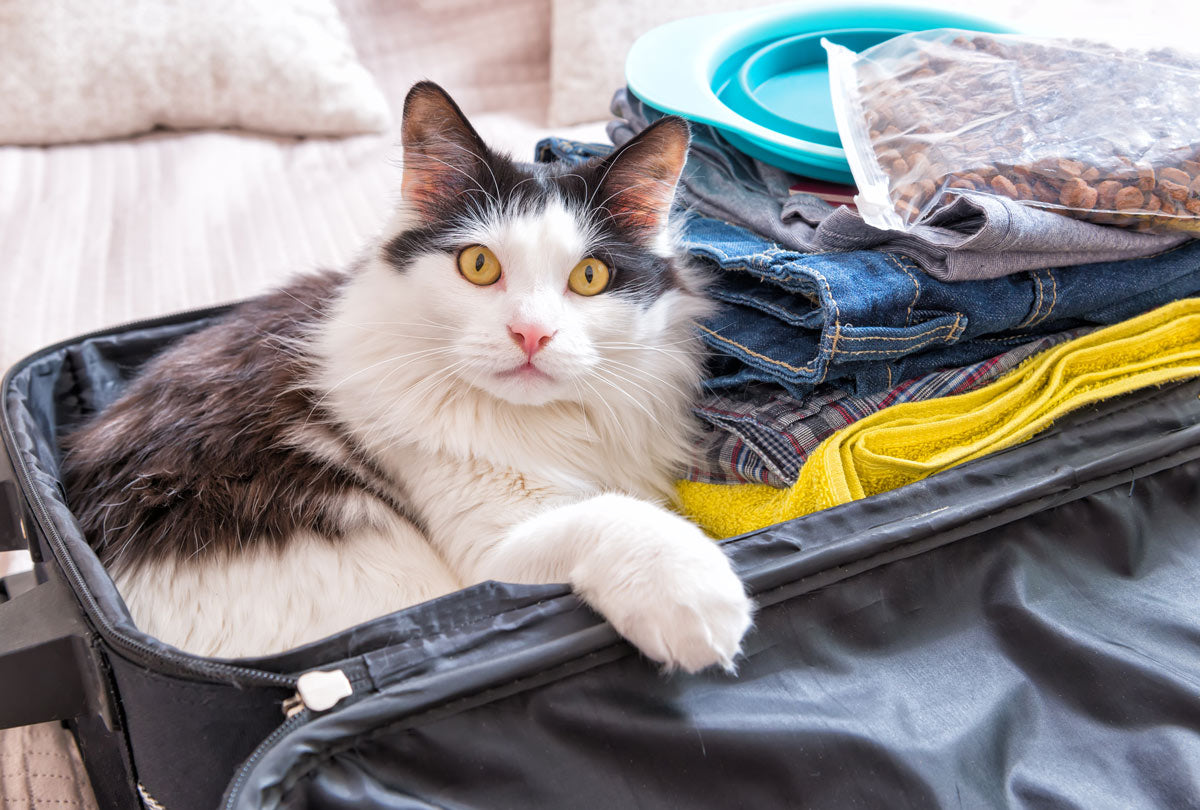When you adopted that sweet bundle of fur, you had big dreams of a blissful life together. That dream did not include chewed up shoes, poop on the new carpets, and worst of all ... your puppy biting you! (We promise ... it WILL get better.)
What’s a loving pet parent to do? First, know that puppy mouthing (biting) is 100% normal and there are many easy tricks that can save your skin ... and your sanity!
Biting Is Primal Instinct for Puppies
Is my puppy part vampire? Does my puppy hate me? Is my puppy just a huge jerk? These are normal questions when you’re dealing with puppy biting, also known as nipping or mouthing. But fear not – there’s nothing sinister going on.
For a puppy, biting is primal instinct. It’s a form of play that starts with their littermates. But when humans in the pack get bitten, that’s when the fun comes to a screeching halt. (Those 28 needle-sharp teeth can really hurt!) What’s important is to teach your puppy bite inhibition, where they learn that good things don’t happen if they bite too hard!
Yelp + Shun = Rule #1 to Teach a Puppy Bite Inhibition
With their littermates, if they are too rough during play, the pup on the receiving end of the harsh nip will respond with a loud yelp and stop playing momentarily, startling the offending pup and making them think twice about biting that hard again.
This same type of loud, high-pitched yelp –in the form of an Ow!!! – is what you should try first if your puppy bites you too hard during play (or even an activity like getting a treat). Then, when your pup lets go, turn your back and put your hands in your armpits, refusing to play for 10 seconds. If your pup backs off, praise them and resume what you were doing.
Note: if your puppy isn’t deterred by you turning your back on them and they keep nipping at you, you can leave the room for a 30-second time-out, providing the room is puppy-proofed. Or you can give THEM a time-out in their crate until they are calm. Just keep your cool in the process, as you don’t want them to associate their crate with punishment.
The goal with all this is to teach your puppy that gentle play is okay, but painful play means game over.
I've tried yelping and it's not helping!
For some puppies (they know who they are), yelping gets them more riled up. In this case, you can use a stern voice ... not shouting, but stern talk. Come up with a short phrase to use in this stern voice, e.g. Don’t do that. Or $%&! &$&. (Whatever works for you.) Then proceed with a shun or time-out.
My puppy STILL won't stop biting me!
Patience is a virtue when it comes to training your puppy, but if you’ve tried time-outs for a while and they aren't curbing your pup’s appetite for destruction (aka they keep biting your hands and clothing), consider using a taste deterrent spray. Before interacting with your pup, simply spray the areas of your body and clothing that they like to bite when playing. Once they get a taste of the bitter stuff and let go, pour on the praise and reward with a treat. Be consistent in doing this for two weeks and you’re sure to see results.
Puppy Play: Dos and Don'ts
Family members play a key role in raising a well-behaved puppy, so follow these dos and don’ts to stop a puppy from biting.
- Don’t wave your fingers or toes in your puppy’s face or gently slap the sides of their face to get them to play. This will entice your puppy to bite at your hands and feet.
- Don’t hit or slap your pup if they get too rough during play ... they will respond by playing even more aggressively. And never physically punish your dog, period. Fearful dogs often become aggressive dogs.
- Do encourage play that doesn’t require using your hands to wrestle with your pup. Tug toys are ideal for this.
- Do provide your pup with a variety of new toys. This will help keep them more interested in biting toys versus biting you or your clothing.
- Do redirect your dog. If you think your puppy is about to bite, offer a chew toy instead.
- Do praise your pup and give treats when you catch them doing behaviors that you like. At their core, pups are people-pleasers.
- Do make your hands, feet, etc. go limp when your pup mouths too hard if possible. Jerky motions will entice them to keep at it.
How to Stop My Dog from Biting When Excited
Early training of the sit command will help with unwanted behaviors like nipping and jumping up when your dog becomes excited. Put your puppy in a sit before engaging in enjoyable activities like going for a walk, playing fetch, eating, or being pet when you walk in the door. This becomes your dog’s way of saying please and asking permission for things. This will help calm your dog’s behavior and teach them good manners.
Additionally, many puppies get excited and start mouthing when they are getting pet and loved on. If this describes YOUR puppy, distract them by giving small treats from one hand while you keep petting them with the other. This will get your puppy accustomed to being pet without turning it into a mouthing session.
A note for the whole family: If your puppy loves to nip or jump when excited, don’t let the kiddos get wild and crazy in front of the puppy. They can get their energy out in another area of the home or outdoors until puppies are past the teething stage (six months). Sudden movements directed at the dog, taking away their chew toys, hugs (in a dog’s mind this equals stranglehold) or overly emotional departures and greetings can also make dogs exhibit inappropriate behavior.
My Puppy Won't Stop Biting Me and My Clothes!
If your mouthy pup likes to nip at your feet and clothing while you walk (which is VERY fun for them, as it’s like an instant game of chase or tug-of-war), you’ll want to redirect them/train an alternative behavior.
Here’s what to do: Carry a high-value toy or treat in your pocket or at your side. The second your pup pounces, stop moving (that alone will help spoil the fun) and put them in a sit. Then reward them by tossing the toy or treat. As they go to retrieve the toy/treat, resume walking.
Don’t have a toy? Stop moving immediately and wait for them to stop nipping. The moment your puppy stops, offer praise and go grab a treat. Repeat until your puppy becomes accustomed to you moving around without going after your feet and clothing.
Note: if you have an adult dog who is nipping at people’s legs, this is not innocent puppy behavior and could be rooted in fear/territorialism. In this case, enlisting the help of a dog trainer is the best choice, as you don’t want guests in your home or strangers getting injured by your dog.
Help! My Puppy Keeps Biting Me Aggressively.
While puppy mouthing and biting is normal during play sessions, what if your puppy keeps biting you aggressively at other times? (Aggressive bites have more force behind them and are obviously more painful than normal mouthing.) A puppy may bite aggressively if ...
- They’re not properly socialized. Being around new pets, people and places will teach your puppy how to interact with the world and not just default to the role of rowdy roughhouser like it was with their littermates. Just make sure their experiences are safe and positive. An off-leash dog park is NOT the place to socialize your puppy, but a puppy training class is! They’ll learn good manners (including bite inhibition) and there’s also supervised play involved. Plus, puppy classes are a good way for the humans to make new friends too!
- They’re bored. Puppies need just as much mental activity as physical activity in their routines, otherwise they may lash out with bad behaviors like biting. Make sure they have lots of puzzle toys and games that can encourage independent play so that you aren’t their sole source of entertainment. Otherwise, if you’re their whole play world, they may nip and jump on you when they feel like they’re not getting enough attention. (For a dog, negative attention is better than no attention.) Learn more about how to solve doggy boredom.
- They’re having troubles during teething. Your puppy’s baby teeth should begin to fall out when they’re around three to four months old to make room for their 42 adult teeth. Once your puppy is six months old, all their baby teeth should have fallen out. A teething puppy can be an unhappy puppy, as this process is painful for them. A puppy’s primal instinct to relieve their sore gums is to chew ... and unfortunately, they may not be discriminatory as far as toys versus your fingers. Additionally, like how a toddler can act out when they’re not feeling well, our fur kids can do the same and seek attention by biting. To combat this behavior, provide your teething pup with lots of good toys and chews. Rubber teething toys that can go in the freezer are always a favorite of teething pups.
- They’re having a temper tantrum. Yes, puppies can have temper tantrums too, which occur when your puppy is in a situation they don’t like, for example holding them still for grooming. Playful puppies will have a relaxed body and face, but during a temper tantrum, they may look stiff and tense. In these cases, don’t yelp like you’re hurt if your puppy bites you. This can ironically make them more aggressive in the moment, sensing your weakness. Instead, if possible, firmly and calmly hold on to your pup until they’ve settled down, then release them (and google dog trainers near me).
- They’re anxious. If you suspect your puppy has anxiety, whether it’s separation anxiety, social anxiety, or noise anxiety, it’s a problem that tends to get worse as they age if there’s no intervention. Exercise, mental stimulation, physical contact, music therapy, behavior modification, and calming supplements are all options to treat your pup’s anxiety. Getting a game plan from a dog behaviorist is a smart choice.
How to stop aggressive puppy biting
A puppy that bites aggressively is more likely to grow up to be aggressive, so it’s important to nip the problem in the bud when they’re younger and easier to train. If you know WHY your puppy is biting aggressively (anxiety, poor socialization, etc.) take proper steps to remedy those problems.
Repeated aggressive puppy biting isn’t normal behavior that they will outgrow on their own, so if the problem persists, enlist the help of a trained professional, like a licensed animal behaviorist or certified dog trainer. If you’re not sure where to start, ask your veterinarian for recommendations. Putting the time in now will be WELL WORTH IT to have a gentle, well-behaved adult dog.
What's up with my pup's growling?
Don’t be too judge-y about your pup’s growling. This doesn’t mean you have an aggressive pup. Playful growling is normal and indicates excitement, happiness or contentment. (Some dogs are naturally more growly.) However, if the growling is accompanied by other signs of aggression like bared teeth or tension in their body or muzzle (i.e. looking stiff or frozen), that’s when there’s cause for concern.
Caring for Your Puppy's Adult Teeth
When your puppy is around six months old, they should have all their adult teeth. Now’s the time to adopt a regular teeth cleaning routine at home and get your pup used to you handling their mouth.
Home dental care is one of the BEST gifts you can ever give your puppy (and yourself). It can save you thousands of dollars at the vet over your puppy’s lifetime; it’ll keep their breath cuddly-fresh; and it could even add YEARS to their life, helping defend against gum disease, which up to 90% of dogs have by age three.
The best way to get started is to get your paws on Oxyfresh’s Pet Toothpaste Kit. It’s the complete package for getting your pup’s teefers squeaky clean. The kit includes:
- 1 soft silicone finger toothbrush – reusable, dishwasher-safe, and feels ahhh-mazing on a puppy’s delicate gums. Less bulky than a traditional handled toothbrush, it’s easy to maneuver in your dog’s mouth and get those back molars.
- 1 tube of Oxyfresh Toothpaste for Dogs – easily removes plaque and keeps their teeth and gums healthy. Plus, this vet-recommended toothpaste for dogs is flavor free so your pup won’t try to chew up the brush ... or your finger.
Did you know? Only Oxyfresh puppy dental products contain Oxygene®, a safe, non-toxic oxidizer that eliminates the bacteria that cause plaque, tartar and bad doggie breath right at the source. No masking agents like mint, poultry, or other suspect flavors. And never any alcohol! We want dental care to feel good on your pup’s teeth and gums.
Don’t wait! Give your sweet puppy the best start in life and adopt a toothbrushing routine today. And to learn more about caring for your puppy’s teeth, check out this Guide to Dog Dental Care. (You know it’s good stuff because it’s actually written by the Dog Tooth Fairy. And if you don’t believe, no biscuit under your pillow.)

